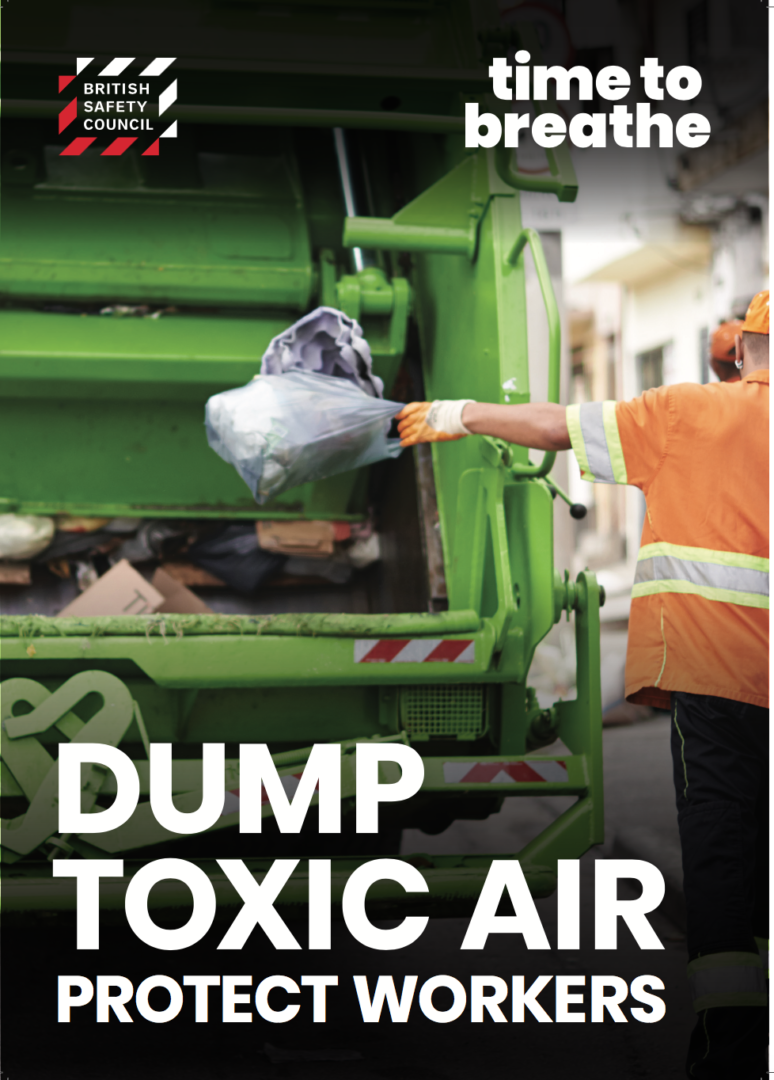
As temperatures in Britain soar to the levels that will break all previous records, the Health and Safety Executive (HSE) has issued advice on how to avoid overheating while working in hot conditions.
Lawrence Waterman, Chairman of the British Safety Council, said: “The British Safety Council welcomes the HSE guidance on working in hot weather. However, similar guidance is needed in relation to outdoor workers who, as well as by heat, are affected by air pollution, particularly in Britain’s largest cities. They spend their working lives close to city traffic and pollution-emitting machinery.
“This issue is relevant not only today but for many years to come as weather in Britain appears to be permanently affected by climate change. Outdoor workers need to be protected from air pollution in hot weather more than any other group of workers. That’s why we need this advice now. We cannot fail them as we have done in relation to asbestos, which continues to cause harm and mount up the health bill.”
Outdoor workers are one of the most vulnerable professional groups in relation to air pollution. The findings of the recent trial conducted by the environmental charity Hubbub, monitoring air pollution exposure of people working or living in London, confirmed that outdoor workers are particularly affected by air pollution. For example, the site engineer at a construction site had air pollution exposure levels six times higher than that of the office worker. Of all the trial participants, the lorry driver had the highest overall exposure.
Furthermore, King’s College London, which draws on and analyses the data from the London Air Quality Network (LAQN), has recently reported that in hot weather the ozone levels in London are rising rapidly which has further adverse health implications.
In March this year, the British Safety Council launched the Time to Breathe campaign to draw attention to what needs to be done now to reduce workers’ exposure and to reduce emissions. In a world first, the campaign also launched Canairy, a free mobile app designed to protect outdoor workers that links occupation to pollution exposure. The British Safety Council has worked with experts at King’s College London’s Environmental Research Group to produce the app.
Canairy draws on the London Air Quality Network (LAQN) pollution map at King’s College London and the worker’s GPS to calculate a user’s exposure to pollution on an hourly basis. Once this exposure exceeds World Health Organisation’s (WHO) limits for the concentration of nitrogen dioxide, particulates and ozone, the app notifies the user and suggests tips to reduce their exposure, including working away from traffic, reducing strenuous work or putting up a screen barrier.
As well as encouraging employers to use Canairy and show their commitment to sustainability, the British Safety Council is calling on its members, as well as other organisations and individuals to write to their local MPs asking them to contact both Secretaries of State for DWP and Defra to call for change. In particular, we are urging them to request:
- The government to immediately recognise exposure to ambient air pollution as an occupational health hazard.
- The government to invest in improved pollution monitoring across the UK. Reducing exposure requires detailed pollution measurements and all UK regions have the right to the same accuracy in emissions data as London.
- The UK to adopt the World Health Organisation’s (WHO) exposure guidelines for nitrogen dioxide, particulate matter (PM2.5 and PM10) and ozone.
- Employers to act to both reduce the exposure of their staff and to minimise their companies’ emissions of pollution.
About the British Safety Council
The British Safety Council believes that no-one should be injured or made ill through their work.
Since its foundation in 1957, the British Safety Council has campaigned tirelessly to protect workers from accidents, hazards and unsafe conditions, and played a decisive role in the political process that has led to the adoption of landmark safety legislation in the UK. Its members in more than 60 countries are committed to protecting and improving the wellbeing of workers, believing that a healthy and safe work environment is also good for business.
As part of its charitable work, the British Safety Council leads health and safety networking forums for all sectors, facilitates and promotes best practice in Britain and overseas. The British Safety Council also has a research function, both in-house and working with partners, that provides evidence-based guidance on a range of topics including well-being. It also offers a range of services and products, including training, qualifications, publications, audits and awards. The British Safety Council works closely with organisations, charities and individuals who share its vision of ensuring that every worker goes home at the end of the day as healthy as they were when they went to work.
In March 2019, the British Safety Council launched its Time to Breathe campaign, which is focused on the protection of outdoor workers from air pollution. The key element of the campaign is Canairy, the first mobile app that gives outdoor workers and their employers insights into pollution and how to reduce staff exposure to it. It has been created in co-operation with King’s College London. Canairy draws on the London Air Quality Network (LAQN) pollution map at King’s and the worker’s GPS to calculate an individual’s exposure to pollution on an hourly basis.
